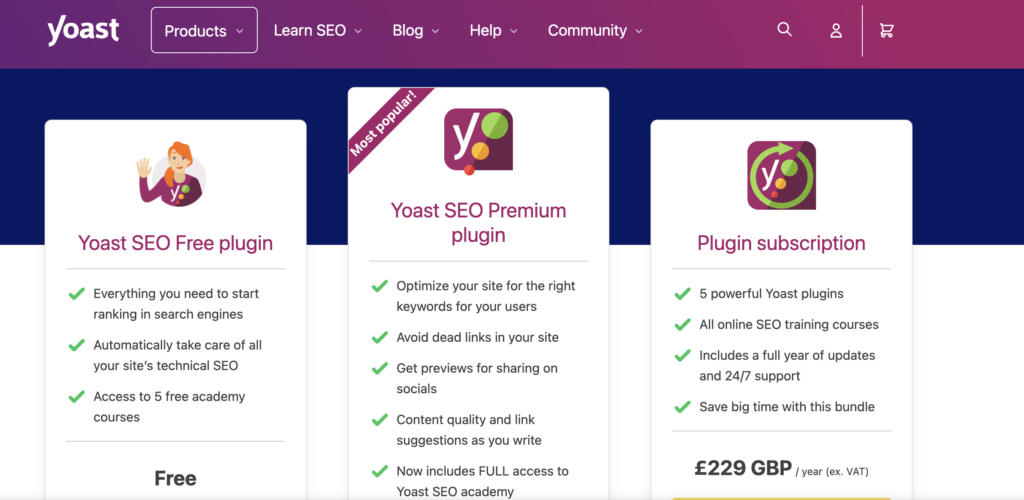SEO, or Search Engine Optimization, is a must-do for any website. You can make your website more noticeable and get more visitors by optimizing its content and structure. This will make it easier for search engines to find and rank your website higher in search results.
Start with keyword research. Find relevant keywords that people are searching for, and use them in your content. Be careful not to overuse them – this is known as keyword stuffing, and it can lower your rankings.
On-page SEO techniques are also important. Optimize elements on your web pages like title tags, meta descriptions, header tags and URLs. This way, search engines can better understand your content and rank it higher.
Off-page SEO is key too. Get backlinks from reliable websites, and do social media marketing and other promotions. This will help your website become more visible and get more visitors.
Lastly, keep up with the latest SEO trends. Search engine algorithms change, so it’s essential to update your strategies to stay ahead.
Don’t miss the chance to raise your online presence. Start optimizing today!
Importance of Search Engine Optimization
SEO is essential for businesses. It helps to increase organic search traffic and build credibility & trust. By using strategies such as keyword optimization, content creation and link building, websites can draw organic visitors and become authorities in their industry.
Furthermore, SEO improves user experience on websites. Websites with SEO tend to load faster, are easier to navigate and provide relevant content. This brings longer browsing sessions, low bounce rates and more engagement with the website’s offerings.
To make SEO even more effective, businesses should do regular keyword research. This helps to identify growth opportunities and tailor content accordingly. Optimizing meta tags with targeted keywords can also improve click-through rates.
Incorporating backlinks from authoritative sources can vastly boost website ranking on search engines. Backlinks are endorsements from other websites and when credible sources link back, search engines see it as a sign of trustworthiness and relevance.
Basic Search Engine Optimization Techniques
Maximize your website’s meta tags by including relevant keywords and describing accurately.
Produce high-quality, unique content with SEO-friendly keywords.
Enhance your website’s loading speed for better user experience and top search engine ranking.
Generate backlinks from reliable websites to raise credibility and visibility.
Guarantee mobile responsiveness for enhanced accessibility and higher positions on mobile search results.
Moreover, to improve SEO even more, optimize images by decreasing their size without sacrificing quality. Compressing images boosts website speed which is essential for both user satisfaction and search engine rankings.
Previously, keyword stuffing was a common practice to manipulate search engine rankings. But, with advancements in algorithms, search engines now prioritize delivering high-quality, valuable content to users. This shift has led to more ethical and efficient optimization approaches being used by digital marketers globally.
Advanced Search Engine Optimization Techniques
Utilizing digital marketing, advanced SEO techniques can make websites soar high on search engine rankings. These strategies help boost online visibility, generate organic traffic, and create a better user experience. Let’s explore some of the cutting-edge SEO strategies experts use for optimal results.
We’ll look at an array of advanced SEO techniques:
| Category | Technique | Description |
|---|---|---|
| On-Page Optimization | Voice Search Optimization | Utilizing long-tail keywords and natural language to cater to voice queries. |
| Mobile-First Indexing | Designing websites with mobile devices in mind – the mobile version is prioritized. | |
| Structured Data Markup | Adding schema markup to provide more information about webpages. This helps search engines understand and display relevant details. | |
| Off-Page Optimization | Influencer Marketing | Leveraging industry influencers to endorse products or services. This enhances brand credibility and increases brand awareness. |
| Backlink Building | Earning high-quality backlinks from authoritative websites. This helps boost website authority and improves search engine rankings. | |
| Technical SEO | Website Speed Optimization | Minimizing server response time, leveraging caching techniques, optimizing code efficiency, and compressing images to ensure a smooth user experience. Search engines prioritize websites with fast loading speeds. |
| Mobile Responsiveness | Creating responsive designs adaptable across various devices. This ensures optimal user experiences regardless of screen size or orientation. |
Latent semantic indexing (LSI) is an advanced SEO technique that uses natural language processing (NLP) to analyze the relationship between words and phrases in content. Relevant keywords and semantically related terms help websites be more relevant to search engine algorithms.
To illustrate the effectiveness of advanced SEO techniques, let’s look at a true story. A local bakery implemented schema markup and optimized their website for voice search. Within two months, they saw a 50% increase in organic traffic. Combining technical proficiency and strategic marketing allowed them to succeed.
Best Practices for Search Engine Optimization
Search Engine Optimization (SEO) is a must for digital marketing. It’s about implementing strategies to boost a website’s visibility and ranking on search engine results pages (SERPs). To optimize your web presence, it’s important to follow the best SEO practices. Here are some to consider:
- Keyword Research: Research relevant keywords and phrases that your target audience might use when looking for products or services like yours. Then put those keywords in your website content, like titles, headings and meta descriptions.
- High-Quality Content: Create valuable, unique content that your audience will appreciate. Write exciting blog posts, articles, guides that position you as an expert in your field. Make sure your content is well-structured, readable, and keyword-optimized.
- Mobile Optimization: With more people using smartphones and tablets to browse the internet, it’s important to make sure your website is mobile-friendly. Optimize your design and functionality for smooth navigation. This includes using responsive design, speeding up page loading, and simplifying forms or checkout processes.
- Link Building: Getting high-quality backlinks from trustworthy websites is key for SEO success. Focus on getting links from authoritative sources related to your industry or niche. This can be done through guest blogging, creating valuable resources that attract links, or reaching out to influencers or bloggers.
Plus:
- Optimizing Your Meta Tags: Make sure each page has unique meta tags (title tags and meta descriptions) with relevant keywords. These elements give a preview of your webpage on SERPs and can draw users’ attention.
To show the effectiveness of these practices, here’s a success story. A small business owner used the above SEO techniques for their website. Over time, they got more organic traffic and their website rose in the search engine rankings. This increased visibility and more potential customers found their products and services.
Remember, SEO is a continuous process that needs to be optimized and monitored. By following the best practices, you can improve your website’s visibility, attract the right traffic, and reach your business goals.
SEO Tools and Resources
Unlock the secrets to SEO success! Utilize these powerful tools and resources to get ahead of the competition:
- Google Analytics – Tracks website traffic, user behavior, and conversion stats.
- SEMrush – Analyzes keyword research and competitor strategies.
- Moz – Monitors website performance and keyword rankings.
- Ahrefs – Explores backlinks and conducts competitive analysis.
- Yoast SEO – Optimizes content for search engines and checks readability.
Plus, don’t forget about other unique resources such as AnswerThePublic. This helps you find questions people are asking related to your industry, so you can create content tailored to that. Meanwhile, Buzzsumo shows you the most shared content on social media – giving you the chance to create compelling pieces that really resonate.

Start leveraging these tools now! They’ll help your website climb higher in search engine rankings, bringing more quality visitors and driving business growth.
Conclusion
SEO is always changing, so staying up-to-date is key for success. Long-tail keywords are a great way to attract more targeted traffic. Optimizing for mobile is also important. Plus, voice search optimization can help you capture an ever-growing audience. Finally, getting backlinks from reputable websites is essential for higher rankings.
Best Search Engine Optimization Techniques – FAQ
Q: What is search engine optimization (SEO)?
A: Search engine optimization (SEO) refers to the practices and techniques used to optimize websites and improve their visibility in search engine rankings, ultimately driving organic traffic and increasing online visibility.
Q: Why is SEO important?
A: SEO is important because it helps websites rank higher in search engine results pages (SERPs), making them more visible to potential customers. Higher visibility leads to increased organic traffic, brand exposure, and potential sales or conversions.
Q: What are the best search engine optimization techniques?
A: The best SEO techniques include optimizing website content with relevant keywords, building high-quality backlinks, improving website speed and user experience, using metadata and schema markup, and optimizing for mobile devices.
Q: How long does it take to see results from SEO?
A: The time it takes to see results from SEO varies depending on various factors such as website age, competition, and the quality of optimization efforts. Generally, it takes several weeks to several months to see noticeable improvements in search engine rankings.
Q: Should I hire an SEO agency or do it myself?
A: Whether to hire an SEO agency or do it yourself depends on your resources, skills, and the complexity of your website. An SEO agency has experience and expertise, providing a comprehensive strategy and ongoing optimization. However, if you have time and knowledge, you can learn and implement SEO techniques yourself.
Q: How can I measure the success of SEO efforts?
A: Success in SEO can be measured through various metrics such as organic traffic, search engine rankings, conversion rates, and engagement metrics. Tools like Google Analytics and Google Search Console can provide valuable insights into the performance of SEO efforts.

